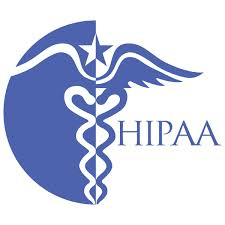Healthcare compliance is a critical aspect of the healthcare industry, ensuring adherence to federal healthcare laws and regulations. It plays a vital role in preventing fraud, abuse, and waste, while upholding ethical standards for patient treatment. However, healthcare compliance is not a simple or straightforward task. It involves navigating a multitude of complex and dynamic factors that pose challenges for healthcare organizations.
Understanding Healthcare Compliance
Healthcare compliance encompasses a wide range of responsibilities aimed at ensuring the quality of care, patient safety, and trust in the healthcare industry. It involves adhering to laws and regulations at the federal, state, and local levels. Compliance efforts are founded on ethical standards that prioritize the well-being and rights of patients.
Challenges in Healthcare Compliance
Navigating healthcare compliance is no easy feat due to various challenges:
- Evolving Regulatory Landscape: Healthcare laws and regulations are subject to frequent changes and updates. Staying abreast of these changes requires constant monitoring, training, and adaptation.
- Diverse Stakeholder Needs: Patients, providers, payers, and regulators have distinct needs and expectations. Healthcare organizations must strike a balance to meet these diverse perspectives while ensuring compliance.
- Technology and Data Management: The increasing use of technology and data in healthcare delivery and management brings cybersecurity risks and data privacy concerns. Protecting patient information and maintaining compliance require robust security measures and protocols.
- Implementing Effective Compliance Programs: Developing and maintaining effective compliance programs can be costly and challenging. It involves establishing governance structures, policies, procedures, controls, audits, reporting mechanisms, and education initiatives.
Importance of HIPAA Compliance
One key area of healthcare compliance is HIPAA compliance. The Health Insurance Portability and Accountability Act (HIPAA) sets standards for protecting sensitive patient information and ensuring the privacy and security of protected health information (PHI). Compliance with HIPAA regulations is crucial for maintaining patient trust and avoiding penalties.
Key Elements of HIPAA Compliance
To achieve HIPAA compliance, healthcare organizations should focus on key elements:
- Administrative Safeguards: Implement policies, procedures, and controls to manage HIPAA compliance within the organization. Designate a Privacy Officer and a Security Officer, conduct workforce training, and establish protocols for risk management and incident response.
- Physical Safeguards: Safeguard the physical environment where PHI is stored and processed. Control access to facilities, implement security measures for electronic devices, and ensure proper disposal of PHI.
- Technical Safeguards: Implement technical measures to protect electronic PHI. Establish secure network configurations, encrypt data in transit and at rest, and conduct regular system audits to identify and address vulnerabilities.
- Privacy Practices: Develop and enforce privacy practices that govern the use and disclosure of PHI. Obtain patient consent, provide notice of privacy practices, and honor individual rights regarding their health information.
- Business Associate Agreements: Enter into agreements with business associates who have access to PHI, ensuring their compliance with HIPAA regulations and the protection of PHI confidentiality and security.
Best Practices for Healthcare Compliance
In addition to HIPAA compliance, healthcare organizations can adopt best practices to navigate the complexities of healthcare compliance effectively:
- Establish a Compliance Culture: Foster a culture of ethics, integrity, and accountability within the organization. Encourage compliance as a shared responsibility among all staff members.
- Conduct Regular Risk Assessments: Identify potential areas of non-compliance or vulnerability within the organization. Regular risk assessments help in understanding and mitigating compliance risks effectively.
- Develop Comprehensive Policies and Procedures: Establish clear policies and procedures that outline compliance expectations for staff members. Provide training and education on these policies to ensure understanding and adherence.
- Implement Robust Compliance Training Programs: Provide ongoing training and education to all staff members on their roles and responsibilities in complying with relevant laws
- Implement Robust Compliance Training Programs: Provide ongoing training and education to all staff members on their roles and responsibilities in complying with relevant laws and regulations. This includes training on privacy and security practices, proper documentation, billing and coding compliance, and ethical standards.
- Establish Internal Auditing and Monitoring: Conduct regular internal audits and monitoring to assess compliance with policies and identify areas for improvement. This helps ensure that corrective actions are taken promptly and proactively.
- Foster Effective Communication: Encourage open lines of communication within the organization regarding compliance issues. Establish channels for reporting potential violations or concerns, ensuring confidentiality and protection against retaliation.
- Engage External Experts: Seek guidance from external experts, such as legal counsel or compliance consultants, to ensure a comprehensive understanding of the complex regulatory landscape and to address specific compliance challenges.
Ensuring Compliance Within Your Organization
In an industry where patient safety and data security are paramount, healthcare compliance plays a vital role in maintaining the integrity of healthcare operations. By proactively addressing challenges, healthcare organizations can navigate the complexities, ensure compliance, and ultimately deliver quality care while protecting the interests of patients, providers, payers, and regulators.
References:
- Gov Health IT. (2021, September 7). Healthcare Compliance.
- U.S. Department of Health & Human Services. (n.d.). HIPAA Privacy Rule and Security Rule.
| Editor’s Note: BHM Healthcare Solutions offers NCQA consulting services with a perfect track record of success for our clients. Contact BHM for a brief discussion on how BHM achieves success. CLICK HERE |






